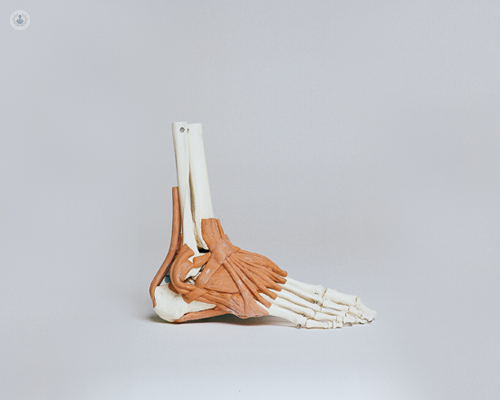Recovering from a foot fracture: Tips for a smooth healing process
Autore:A foot fracture can significantly disrupt your daily life, but with the right approach to recovery, you can minimise discomfort and ensure a successful healing process. Proper care, patience and following medical advice are essential for restoring your mobility and returning to normal activities.

What happens after a foot fracture is diagnosed?
Once your foot fracture is confirmed through X-rays or other imaging tests, your doctor will recommend a treatment plan tailored to the severity and location of the break. This might include:
- Immobilisation: Using a cast, splint or boot to keep the fractured area stable while it heals.
- Surgery: In cases of severe fractures, surgical intervention may be necessary to realign the bones or stabilise them with screws, plates or pins.
- Pain management: Medication or ice packs to reduce swelling and alleviate pain.
Tips for a smooth recovery
Recovering from a foot fracture takes time, but these tips can help ensure a smoother process:
- Follow your doctor's advice: Adhere to your treatment plan, including wearing your cast or boot as instructed and attending follow-up appointments.
- Rest and elevate your foot: Limit weight-bearing activities and keep your foot elevated to reduce swelling and promote blood flow.
- Use crutches or mobility aids: These can help you move around without putting pressure on the injured foot.
- Apply ice packs: Ice can help reduce swelling, especially in the first few days after the injury.
The importance of physical therapy
Once your fracture has started to heal, physical therapy may be recommended to restore strength, flexibility and balance. A physiotherapist can guide you through exercises to:
- Rebuild muscle strength around the foot and ankle.
- Improve joint mobility and range of motion.
- Reduce stiffness caused by immobilisation.
What to avoid during recovery
To avoid setbacks, keep the following in mind:
- Avoid putting weight on the injured foot too soon: Premature weight-bearing can delay healing or worsen the injury.
- Don't skip follow-ups: Regular check-ups ensure your fracture is healing correctly.
- Limit strenuous activities: Refrain from high-impact exercises or activities until your doctor clears you.
How long does it take to recover?
Recovery time varies depending on the severity of the fracture and your adherence to the treatment plan. Simple fractures may heal within 6-8 weeks, while more complex injuries could take several months.
By following these guidelines and working closely with your healthcare provider, you can maximise your chances of a full recovery and return to your normal activities with confidence.


